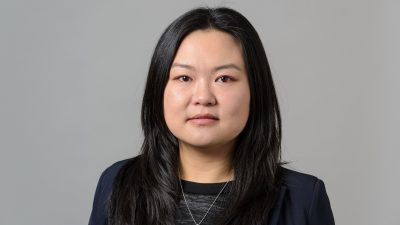
Established in 2010, the DOE Office of Science Early Career Research Program supports the individual research programs of outstanding scientists early in their careers and stimulates research careers in the disciplines supported by the DOE Office of Science: Advanced Scientific Computing Research (ASCR), Biological and Environmental Research (BER), Basic Energy Sciences (BES), Fusion Energy Sciences (FES), High Energy Physics (HEP), Isotope R&D and Production (IP), and Nuclear Physics (NP).
Among the 83 university and DOE national lab researchers announced as recipients of the award for 2022, Assistant Professor of Materials Science and Engineering Yuanyuan Zhu is the only Connecticut researcher to receive the honor. IMS News asked Dr. Zhu about her research and the award.
In 2019, you were appointed Director of the UConn DENSsolutions InToEM Center for in-situ TEM research at IPB Tech Park. You have since had papers published related to the research the Center is conducting. As we are seeing more and more evidence of the effects of climate change, how do you hope your research at the InToEM Center will assist in solving some of the problems we are now dealing with?
Yes, we have published a couple of papers since 2019 using the in-situ environmental TEM gas cell. Here you can find our full publications: https://scholar.google.com/citations?hl=en&user=HlDqamcAAAAJ&view_op=list_works&sortby=pubdate .
It’s a coincidence that the DENSsolutions’ ETEM gas cell system is named as “Climate”, because it involves gas environment for chemical reactions in a microscope. Another example is their liquid cell system, which is called “Stream” simply because the reaction stimuli involved.
There are many materials researches related to energy and environment, including climate change, that can benefit from the in-situ ETEM research. One immediate example is heterogeneous catalysis used for natural gas conversion and H2 production. And the fusion energy materials research funded by the DOE ECA is another good example.
Congratulations on receiving the Department of Energy’s Early Career Award for 2022. What are your hopes for your research on Understanding Thermal Oxidation of Tungsten and the Impact to Radiation Under Fusion Extremes?
Fusion energy holds great promise for replacing fossil fuels for 24/7 baseload electrical power. We are excited that the DOE Early Career Award will fund our in-situ ETEM study to directly address a well-known fusion safety hazard concerning aggressive high-temperature oxidation of plasma-facing material tungsten. We hope to gain fundamental understanding of tungsten degradation in case of air-ingress scenarios that could inform the best strategy for responding to accidents, and could guide the design of advanced W-based materials that better preserve divertor integrity for even more demanding DEMO fusion extremes. Simply put it, we want to make the operation of fusion energy systems safer and more reliable.
You have several Ph.D. candidates under your advisement. How do you hope to influence these young scientists?
Our research group provides a welcoming, supportive and inclusive working environment to drive personal success for each Ph.D. researcher. Through the first-hand work on such research projects closely to clean energy and sustainability, I believe our Ph.D. students will gain confidence and skills in research and also develop a solid sense of social responsibility.
We are seeing many more women represented in STEM. What advice would you give to young women who may be considering a career in science, technology, engineering and mathematics?
We need everyone in STEM, and anything is possible if one follows his/her/their passion. Research is fun but progress is built on failure and resilience.
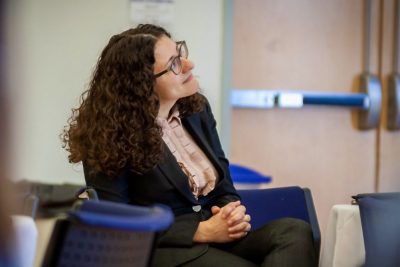

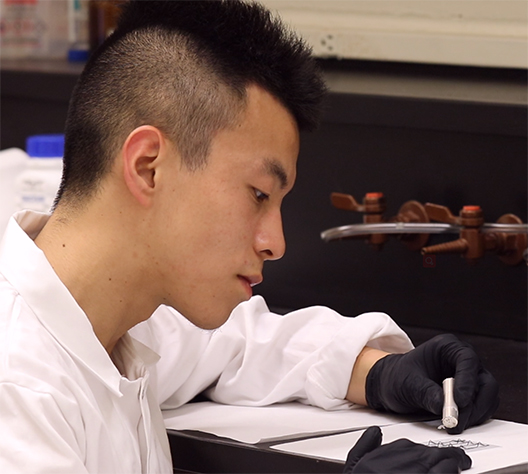
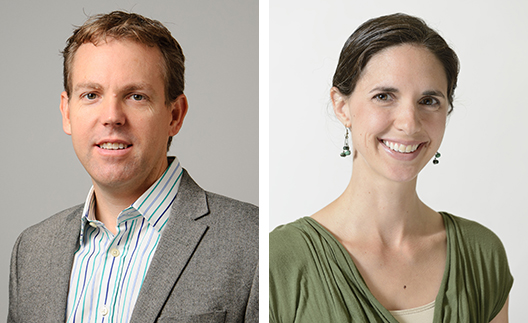
 Dr. Ying Li is one of eight UConn faculty members, and three IMS faculty members, to receive a National Science Foundation Career CAREER Award in 2021. Li will develop a machine learning model to better understand the properties of a promising sustainable material.To learn more about the award
Dr. Ying Li is one of eight UConn faculty members, and three IMS faculty members, to receive a National Science Foundation Career CAREER Award in 2021. Li will develop a machine learning model to better understand the properties of a promising sustainable material.To learn more about the award 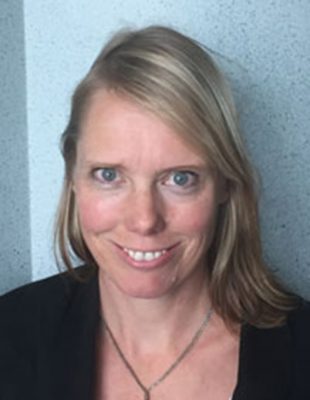 Professor of marine sciences and geography, Heidi Dierssen, has received a nearly $577,000 grant from NASA to study better methods for remote sensing of surface microplastics using satellites. The project will involve a collaboration with a visual artist to advance community understanding of this problem.
Professor of marine sciences and geography, Heidi Dierssen, has received a nearly $577,000 grant from NASA to study better methods for remote sensing of surface microplastics using satellites. The project will involve a collaboration with a visual artist to advance community understanding of this problem.

